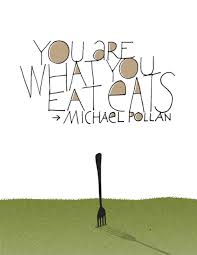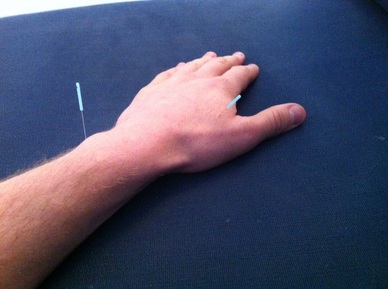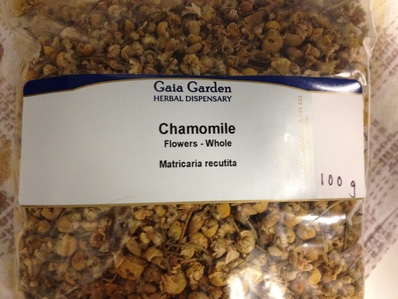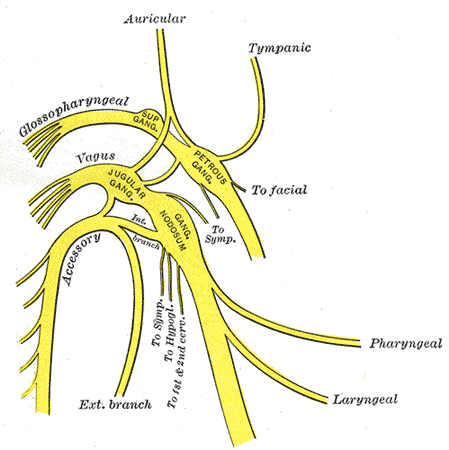An Excerpt From Eckhart Tolle's 'A New Earth' "In The Power of Now, I mentioned my observation that after two ducks get into a fight, which never lasts long, they will separate and float off in opposite directions. Then each duck will flap its wings vigorously a few times, thus releasing the surplus energy that built up during the fight. After they flap their wings, they float on peacefully, as if nothing had ever happened. "If the duck had a human mind, it would keep the fight alive by thinking, by story-making. This would probably be the duck's story: 'I don't believe what he just did. He came to within 5 inches of me. He thinks he owns this pond. He has no consideration for my private space. I'll never trust him again. Next time he'll try something else just to annoy me. I'm sure he's plotting something already. But I'm not going to stand for this. I'll teach him a lesson he won't forget.' And on and on the mind spins its tales, still thinking and talking about it days, months, or years later. As far as the body is concerned, the fight is still continuing, and the energy it generates in response to all those thoughts is emotion, which in turn generates more thinking. This becomes the emotional thinking of the ego. You can see how problematic the duck's life would become if it had a human mind. But this is how most humans live all of the time. No situation or event is ever really finished. The mind and the mind-made 'me and my story' keep it going.
"We are a species that have lost its way. Everything natural, every flower or tree, and every animal have important lessons to teach us if we only stop, look, and listen. Our duck's lesson is this: Flap your wings--which translates as 'let go of the story' - and return to the only place of power: the present moment." - Eckhart Tolle, from A New Earth: Awakening to Your Life's Purpose
0 Comments
The scientific journal Annual Reviews recently asked Dr. David Katz to review the evidence for a number of popular and well-researched diets, and decide if there is one that stands above them all as 'best for health'. Dr. Katz is the founding director of the prevention research centre at Yale University, and having read some of his articles in the past, he is a good candidate to provide such a review. The article by Katz and his colleague Stephanie Melle, entitled 'Can We Say What Diet Is Best For Health?', gives an insightful overview of the current literature on health outcomes of different diets. While there are far too many diets out there to review them all (a quick google search for 'best diet' returns nearly half a billion hits), Dr. Katz did his best to break them down into popular categories, such as low-carb, vegetarian, mediterranean, and paleo. See the table below for a summary. Which Diet is the Best? After comparing the research on these different diets, did they determine a winner? Not exactly. While there were health benefits shown in each of the diets, there was not one that was clearly the best. Instead, there were components and patterns that spanned across the different diets, and promoted the best health outcomes. Dr Katz' reply to the question, "can we say what diet is best for health?" "If diet denotes a very specific set of rigid principles, then [the answer is] a decisive no. If, however, by diet we mean a more general dietary pattern, a less rigid set of guiding principles, the answer reverts to an equally decisive yes." Dr Katz goes on to explain what these common principles are: "There are common elements across eating patterns that are proven to be beneficial to health" and that "a diet of minimally processed foods close to nature, predominantly plants, is decisively associated with health promotion and disease prevention." In other words: Eat food. Not too much. Mostly Plants. Where's The Beef? Although the recommendation is to eat mostly plants, some people enjoy meat and feel better when they eat it. Dr. Katz recommends that your meat also eats mostly plants, as the composition of meat and milk are as much influenced by diet as we are. So choose grass-fed meat, milk and butter if you do indeed eat it. And if you are concerned about the higher cost of better quality meat, remember the middle section of Michael Pollan's food rules: "Not too much." In other words: spend more, eat less. Final Thoughts
Choosing a 'best diet' is not a mutually exclusive selection. Some people like the idea of a paleo diet, others feel better when they go gluten free. It's all about individual choice, and doing what makes you feel great. However, the bottom line of eating as close to nature as possible and more plants is as simple as it is sound advice. One final thought I would like to add in - the 80:20 rule. If you try to eat perfectly 100% of the time, you are bound to eventually succumb (unless you are super-human and/or a robot), and the feelings of guilt and failure are likely far worse for your health than whatever 'bad food' you ate. So strive for balance - eating real, whole food most of the time - but allow yourself a little indulgence for the soul every now and then. Doctors orders ;) In health, Dr. T Anxiety and insomnia are prevalent problems faced by many people in modern society, and are very common reasons for visiting the doctor. If you go to your MD complaining of anxiety and insomnia, chances are you will walk away with a prescription for medications such as a Benzodiazepine (Valium) or Zolpidem (Ambien). However, you may want to consider natural treatment options first, as a new study has linked several of these medications to increased risk of death. The study published in the British Medical Journal followed people in Britain who were prescribed anti-anxiety or insomnia medications for 7 years, and matched them to controls (people not taking the medications). After adjusting for factors such as age, other medication use, smoking, alcohol use, and socioeconomic status, they concluded that these medications doubled the risk of death. Now, this is an observational study, so is does not necessarily mean that the medications themselves caused the increased mortality - however, it does stress the importance of considering non-drug treatment alternatives for anxiety and insomnia. Luckily, there are several tools in the Naturopathic repertoire that are safe and very effective at treating anxiety and sleep problems! Two of my favourite treatments for these common conditions are acupuncture and herbal medicine. Acupuncture Acupuncture has been used for thousands of years, and in the past few decades has been subjected to modern clinical studies. Rather than specifically treating "anxiety" or "insomnia," in Traditional Chinese Medicine (TCM) we look for patterns in the body and signs of imbalance. By restoring balance and the flow of Qi (life energy), symptoms such as anxiety and insomnia tend to resolve. After an acupuncture session many people report a deep sense of calm and relaxation, lowered levels of stress and anxiety, and greatly improved sleep. This in turn leads to more energy and vitality, and overall better quality of life. While it has long been known to practitioners and patients that acupuncture is beneficial for anxiety and insomnia, the physiological mechanisms were unknown. However, recent research has shed some light on how exactly acupuncture aids in these conditions. Some of the ways acupuncture helps with anxiety and insomnia is by :
Herbal Medicine Another safe and effective treatment for anxiety and insomnia is herbal medicine. Botanicals have been used as medicine for as long as doctors have existed, and many of the drugs on the market today are derived from common herbs. Categories of herbal actions that can help include the calming nervines and sedative/hypnotic herbs. Some of the most effective herbs for anxiety and insomnia include: Passionflower (Passiflora incarnata)
Chamomile (Matricaria recutita)
Skullcap (Scutellaria lateriflora)
Lemon Balm (Melissa officinalis)
There any many many more herbs that can be effective for anxiety and insomnia, and it is always important to consult a health care practitioner to determine which ones are best suited for you and to ensure their safe use. Sources: Weich, Scott, et al. "Effect of anxiolytic and hypnotic drug prescriptions on mortality hazards: retrospective cohort study." BMJ: British Medical Journal 348 (2013). Spence, D. Warren, et al. "Acupuncture increases nocturnal melatonin secretion and reduces insomnia and anxiety: a preliminary report." The Journal of neuropsychiatry and clinical neurosciences 16.1 (2004): 19-28. Eich, H., et al. "Acupuncture in patients with minor depressive episodes and generalized anxiety. Results of an experimental study." Fortschritte der Neurologie-Psychiatrie 68.3 (2000): 137-144. Chronic inflammation is a growing problem and is associated with myriad diseases including diabetes, heart disease, and cancer, to name but a few. In fact, back in 2004 Time Magazine had a cover story on inflammation, calling it "The Secret Killer." Inflammation is an adaptive process in our bodies, an evolutionary mechanism for survival. It is beneficial and necessary for our bodies to respond to stress, toxins, injuries, etc, but it needs to be in balance. If it continues without resolving, it can lead to chronic disease. The conventional approach is to block or suppress inflammation through the use of medications such as non-steroidal anti-inflammatory drugs (NSAIDs), commonly known as Advil or Ibuprofen. However, we now know that in order to heal we do not want to simply block inflammation, but rather modulate it to achieve balance and resolution. The field of psychoneuroimmunology studies how the brain interacts with the nervous system and immune function. It is a fascinating field, as this connection reveals how the mind and the way we think can actually influence and alter physiological processes, such as our immune response. This research also gives us potential non-drug treatments for inflammation and the conditions associated with it. A study published in January 2013 assessed the effects of mindful meditation on the inflammatory response. 49 participants were randomly assigned to either an 8-week mindfulness-based stress reduction program (MBSR) or an 8-week active control health enhancement program (HEP) that included walking, balance, agility, core strength, nutritional education, and music therapy. They then exposed both groups to psychological stress (public speaking) and physical stress (cayenne pepper rubbed on the arm), and found that the group trained in mindfulness-based stress reduction had significantly reduced post-stress inflammatory responses. This study showed that mindfulness-based meditation is able to alter the inflammatory response, but the mechanism was still largely unknown. One mechanism of meditation influencing inflammation is through the vagus nerve. The vagus nerve is large and far-reaching, with branches connecting to everything from the heart to the lungs and digestive tract. It's role in the immune response is referred to as the cholinergic anti-inflammatory pathway, and it explains how our thoughts and mind can directly influence the immune response and inflammation. It was first discovered in animal models that if you stimulated the vagus nerve it would reduce the release of inflammatory mediators. This has also been found in humans, and along with meditation, the vagus nerve can also be stimulated by aerobic exercise, acupuncture, and dietary supplements such as fish oils. A recent study from the University of Wisconsin showed that mindfulness-based meditation can actually affect the genes that control inflammation. The researchers measured the effects of a day of mindfulness-based meditation, and found altered levels of gene-regulating compounds and reduced levels of pro-inflammatory genes. These genetic and biochemical changes also correlated with faster recovery from a stressful situation.
If you suffer from an inflammatory condition such as arthritis or would like to prevent chronic inflammatory disease, there is good reason to consider non-drug treatments such as meditation and acupuncture to modulate the inflammatory response. Sources: Rosenkranz, Melissa A., et al. "A comparison of mindfulness-based stress reduction and an active control in modulation of neurogenic inflammation."Brain, behavior, and immunity 27 (2013): 174-184. Kaliman, Perla, et al. "Rapid changes in histone deacetylases and inflammatory gene expression in expert meditators."Psychoneuroendocrinology 40 (2014): 96-107. Health Canada recently recalled several popular health supplements due to contamination, which led many to question the safety and efficacy of their natural health supplements. This is an important subject to discuss, as the popularity of natural health products such as vitamins, minerals, and herbs continues to rise. A 2010 survey reported that 73% of Canadians use natural health products. Does Natural Equal safe? There is a common misconception that if something is 'natural' (i.e. comes from nature) it is safe. This is a dangerous assumption to make, especially combined with the "if a little is good, a lot is better" mentality. Natural substances such as vitamins and herbs exert a physiological effect on the body, and can interact with other pharmaceutical drugs and cause harm. And as noted by the Renaissance physician Paracelcus, taken in excess, anything can become a poison. Just as the quality of the food you eat can vary greatly (think Mcdonalds vs. well, anything else), so too can the quality of your supplements.
Many patients wonder why they should pay for professional brand supplements when they can get a lifetime supply of the "same" supplement at Costco. This is to ensure that quality control measures are met, such as testing the raw ingredients for heavy metals or pesticides, and testing the finished product for any contaminants. There is also a big difference in the quality of raw materials, potency, and effectiveness of different health supplements. So while it may be cheaper to stock up at Costco, in the end you get what you pay for. How to choose a safe and effective health supplement It can be a daunting task to walk into a health food store and choose from the wide variety of products. Naturopathic Physicians have extensive training in clinical nutrition and the use of supplements. It is always best to consult with a naturopathic physician to determine what supplements are actually necessary, and which products are the safest and most suited for your particular needs. Yours in health, Dr. T |
AuthorDr. Tomah Phillips, ND Archives
April 2020
Categories
All
|










 RSS Feed
RSS Feed